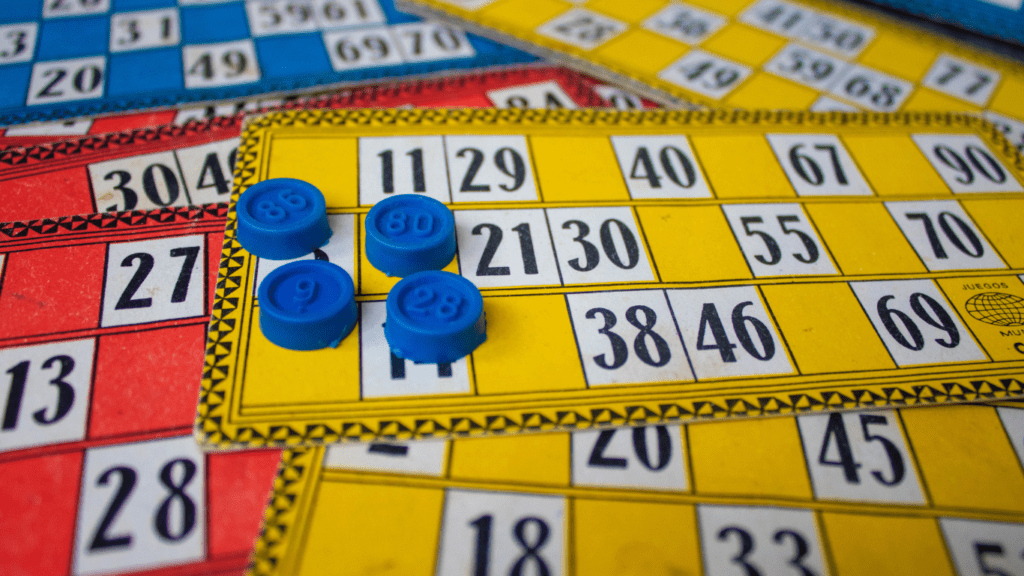Winning the lottery should be a cause for celebration, but it often comes with unexpected challenges. As lottery scams surge, many unsuspecting winners find themselves targeted by fraudsters eager to exploit their good fortune.
It’s disheartening to think that a moment of joy can quickly turn into a nightmare if you’re not aware of the risks. In this article, I’ll explore the alarming rise of lottery scams and share essential tips to safeguard your hard-earned winnings.
Understanding the tactics used by scammers is the first step in protecting yourself. Let’s dive into how you can enjoy your success without falling victim to deceitful schemes.
Understanding Lottery Scams
Lottery scams exploit winners, turning their excitement into vulnerability. Recognizing these scams and understanding their tactics is crucial for safeguarding winnings.
Types of Lottery Scams
- Phishing Scams: Scammers send emails or messages that appear to be from legitimate lottery organizations. These requests often ask for personal information or payment to claim supposed winnings.
- Fake Lottery Notifications: Fraudsters send letters or texts claiming that individuals have won a prize. They often request an upfront fee to release the funds.
- Advance Fee Scams: Some scams involve a promise of a large jackpot with the condition of paying taxes or fees in advance. Once the money is sent, the scammer disappears.
- Social Media Scams: Scammers utilize social media platforms to falsely announce winners or create fake contests. Victims are often prompted to share personal details or pay to enter.
Common Tactics Used by Scammers
- Urgency: Scammers create a sense of urgency, suggesting that individuals must act quickly to claim their winnings. This pressure can cloud judgment.
- Impersonation: Scammers impersonate legitimate lottery officials or agencies, enhancing trustworthiness and making their schemes more convincing.
- High-Pressure Sales: Scammers often employ aggressive tactics to convince victims of the legitimacy of their claims. They may insist on immediate actions, urging victims not to consult anyone.
- Emotional Appeals: Scammers exploit emotions, encouraging individuals to envision financial freedom or luxury lifestyles, making people more susceptible to their schemes.
Signs of a Lottery Scam
Recognizing the signs of a lottery scam is essential for protecting your winnings. Below are key indicators that can help you identify potential fraud.
Red Flags to Look For
- Unexpected Notifications: Receiving a lottery win notice without entering a lottery raises suspicion.
- Requests for Personal Information: Scammers often ask for personal details like Social Security numbers or bank account information.
- Urgent Demands for Payment: Fraudsters may insist on upfront fees to claim winnings, a common tactic for scams.
- Unprofessional Communication: Poor grammar, misspellings, and generic greetings usually indicate a scam.
- High-Pressure Sales Techniques: If someone pressures you to act quickly, it’s a significant warning sign.
How to Spot Fake Notifications
- Check the Source: Verify the legitimacy of the organization notifying you about the win.
- Look for Official Logos: Genuine notifications include official logos and branding; fake ones often lack these elements.
- Search for Contact Information: Scams often provide non-functional or vague contact details. Verify any provided information independently.
- Review the Website: Check the website associated with the notification. Real lottery sites have secure connections (indicated by “https://”).
- Cross-Reference Official Channels: Confirm wins through official lottery websites or customer service—trustworthy organizations will never ask for payment upfront.
Protecting Yourself from Scams
Awareness is key in protecting yourself from lottery scams. Implementing clear verification practices and knowing what to do if something seems off can safeguard your winnings.
Best Practices for Verification
- Check for Official Communication: Confirm the source by cross-referencing notification details with official lottery websites or customer service hotlines.
- Verify Contact Information: Look for contact information that aligns with official listings, ensuring it’s legitimate.
- Examine Offers Closely: Scrutinize the details in winning notifications. Legitimate lotteries won’t require upfront payments to claim winnings.
- Research the Lottery: Investigate the legitimacy of lotteries. Scammers often use familiar names but may lack authenticity.
- Use Trusted Sources: Trust only recognized lottery platforms or government websites for information regarding winnings.
Steps to Take if You Suspect a Scam
- Do Not Respond: Avoid replying to suspicious messages or calls. This can open the door for further scams.
- Document Everything: Keep records of any communications, including names, dates, and content of messages.
- Report the Scam: Notify local authorities, consumer protection agencies, or the Federal Trade Commission (FTC) to help curb fraudulent activities.
- Inform Your Lottery Organization: Reach out to the lottery organization directly. They can provide guidance and may investigate the claim.
- Stay Cautious Moving Forward: Remain vigilant about future communications and continue practicing verification methods to protect your winnings.
What to Do If You’ve Been Scammed
Experiencing a lottery scam can be distressing. Knowing the right steps to take can aid in recovery and prevent further issues.
Reporting the Scam
Reporting the scam promptly is crucial. I recommend contacting local law enforcement to file a police report. This documentation can assist in investigations. Additionally, report the scam to the Federal Trade Commission (FTC) through their website at reportfraud.ftc.gov.
Notifying the Better Business Bureau (BBB) can also provide insight into common scams and fraud prevention resources. If the scam involved an official lottery organization, reach out to them directly to inform them of the fraudulent activity.
Seeking Legal Help
Seeking legal expertise may be necessary after being scammed. Consulting with an attorney who specializes in consumer protection or fraud can clarify my rights and possible actions. Legal professionals can offer guidance on how to pursue restitution or take further action against the scammers.
Documenting all interactions and saving any fraudulent communications will strengthen my case.





